
What were you reading in 2019 on LSE Review of Books? We count down the most-read new book reviews published this year on the blog.
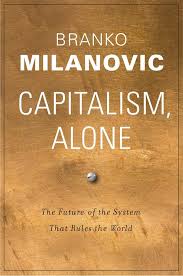 12. Capitalism, Alone: The Future of the System That Rules the World. Branko Milanovic. Harvard University Press. 2019.
12. Capitalism, Alone: The Future of the System That Rules the World. Branko Milanovic. Harvard University Press. 2019.
If capitalism has triumphed to become the sole socio-economic system globally, what are the prospects for achieving a fairer world? Published in autumn 2019, Capitalism, Alone examines the historical shifts that have led to capitalism’s dominance and proposes choices to ensure that capitalism delivers a more equitable future. Roberto Iacono praised this remarkable book as possibly Branko Milanovic’s most comprehensive opus so far.
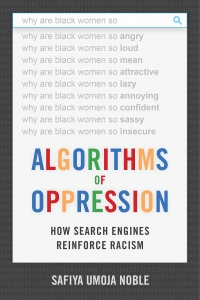 11. Algorithms of Oppression: How Search Engines Reinforce Racism. Safiya Umoja Noble. New York University Press. 2018.
11. Algorithms of Oppression: How Search Engines Reinforce Racism. Safiya Umoja Noble. New York University Press. 2018.
Safiya Umoja Noble draws on her research into algorithms and bias to show how online search results are far from neutral, but instead replicate and reinforce racist and sexist beliefs that reverberate in the societies in which search engines operate. Helen Kara praised this as a timely and important book that sheds light on the ways that search engines impact on our modes of understanding, knowing and relating.
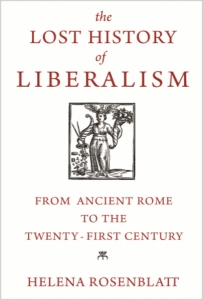 10. The Lost History of Liberalism: From Ancient Rome to the Twenty-First Century. Helena Rosenblatt. Princeton University Press. 2018.
10. The Lost History of Liberalism: From Ancient Rome to the Twenty-First Century. Helena Rosenblatt. Princeton University Press. 2018.
Helena Rosenblatt gives an account of how the meanings of ‘liberalism’ have evolved through a world history of its uses from ancient Rome to the present day, recovering some of its connotations that have been lost, discarded or eroded. Alex Tebble found that the book challenges many of the assumptions held about liberalism and reveals the historical foundations of why it may well be, above all, an elusive tradition.
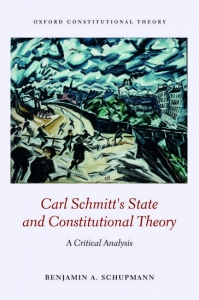 9. Carl Schmitt in and out of History by Joshua Smeltzer
9. Carl Schmitt in and out of History by Joshua Smeltzer
In this review essay, Joshua Smeltzer reviewed two recent books that return to the works of the infamous political and legal theorist Carl Schmitt: namely, Carl Schmitt, Perilous Futures: On Carl Schmitt’s Late Writings by Peter Uwe Hohendahl and Carl Schmitt’s State and Constitutional Theory: A Critical Analysis by Benjamin Schupmann. Smeltzer reflected on some of the methodological challenges of studying Schmitt’s work in historical context, questioned scholarly attempts to rehabilitate Schmitt as a liberal state theorist and called for greater attention on other protagonists in the intellectual history of German democracy.
 8. Maoism: A Global History. Julia Lovell. Bodley Head. 2019.
8. Maoism: A Global History. Julia Lovell. Bodley Head. 2019.
Julia Lovell brought readers a fascinating and timely work on one of the most influential and disruptive strands of Marxist thought: that of Mao Zedong. Taking a broad view of the former Chinese leader across time and space, the book reveals the relevance of Mao to our current populist age, found Ben Margulies.
k-punk gathers together work written by the influential British cultural theorist and political activist Mark Fisher between 2004 and 2016, the year before his death. Despite the circumstances of the book’s publication and its sustained emphasis on the worst aspects of life under late capitalism, Sean Seeger argued that the overall impression of the volume is not despondency but rather an awareness of new possibilities, including a revitalised feeling for the utopian potential of art and music.
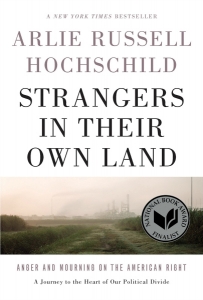 6. Strangers in their Own Land: Anger and Mourning on the American Right. Arlie Russell Hochschild. The New Press. 2018 [2016].
6. Strangers in their Own Land: Anger and Mourning on the American Right. Arlie Russell Hochschild. The New Press. 2018 [2016].
Arlie Russell Hochschild explores the ‘deep story’ behind the rise of the Tea Party and Donald Trump in the USA, drawing on close contact with her research subjects over a five-year period of living in Louisiana. While the book may struggle to ultimately explain the origins of this phenomenon, Tim Winzler nonetheless found it a valuable contribution to sociological understanding due to Hochschild’s intense immersion in the field and her use of interconnected research methods.
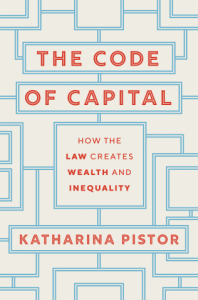 5. The Code of Capital: How the Law Creates Wealth and Inequality. Katharina Pistor. Princeton University Press. 2019.
5. The Code of Capital: How the Law Creates Wealth and Inequality. Katharina Pistor. Princeton University Press. 2019.
Katharina Pistor offers an expansive analysis of the construction of capital, showing legal coding to be at the heart of this process. Juvaria Jafri welcomed this as an interdisciplinary contribution which attaches fresh dimensions to debates on the political economy of wealth and inequality and as a valuable resource for anyone seeking to grapple with the formidable nature of global capital.
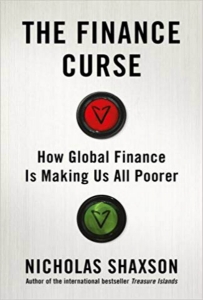 4. The Finance Curse: How Global Finance is Making Us All Poorer. Nicholas Shaxson. Bodley Head. 2018.
4. The Finance Curse: How Global Finance is Making Us All Poorer. Nicholas Shaxson. Bodley Head. 2018.
Nicholas Shaxson charts the devastation caused by the concentration and consolidation of global finance, its ideologies and institutions. As the book underscores the need for fundamental reform of business, accounting and finance education, Atul K. Shah praised Shaxson for exposing global finance as a curse, not a boon.
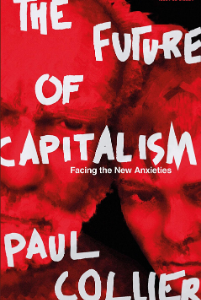 3. The Future of Capitalism: Facing the New Anxieties. Paul Collier. Allen Lane. 2018.
3. The Future of Capitalism: Facing the New Anxieties. Paul Collier. Allen Lane. 2018.
In The Future of Capitalism: Facing the New Anxieties, Paul Collier offers a forthright discussion of capitalism today that seeks to diagnosis and propose remedies for the anxieties shaping divisions between families, cities and nations. Mehmet Emin Bayram reviewed this notable book that aimed to call attention to the need for pragmatism and ‘the hard centre’.
 2. The Class Ceiling: Why It Pays to be Privileged. Sam Friedman and Daniel Laurison. Bristol University Press. 2019.
2. The Class Ceiling: Why It Pays to be Privileged. Sam Friedman and Daniel Laurison. Bristol University Press. 2019.
‘Black British working-class women have average earnings in top jobs that are £20,000 less per year than those of privileged-origin white men.’ This is just of the findings of Sam Friedman and Daniel Laurison’s analysis of class inequality at the top end of the UK labour market. The book is not only compulsory reading for anybody who still believes that the UK is a meritocracy, argued Liam Kennedy, but its mixed-methods approach allows for important, nuanced and often overlooked aspects of social mobility to be understood.
In the most read LSE RB book review of 2019, Simon Kaye reviewed Roger Eatwell and Matthew Goodwin’s addition to the revived Pelican series, National Populism, which offers a concise examination of the rise of national populism, seeking to challenge some of the established views regarding this political shift. While elements of the book’s analysis do engage in simplification, Simon Kaye nonetheless found this a succinct, striking and thought-provoking work.
Feature image used in this post is credited to Covi from Pixabay (CCO)


 7. k-punk: The Collected and Unpublished Writings of Mark Fisher (2004-2016). Mark Fisher, edited by Darren Ambrose with Simon Reynolds. Repeater Books. 2018.
7. k-punk: The Collected and Unpublished Writings of Mark Fisher (2004-2016). Mark Fisher, edited by Darren Ambrose with Simon Reynolds. Repeater Books. 2018.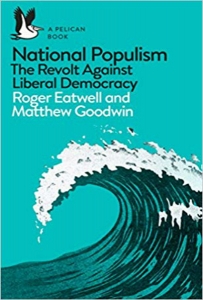




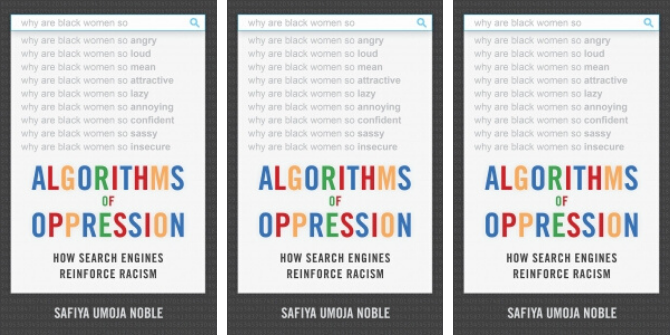

1 Comments